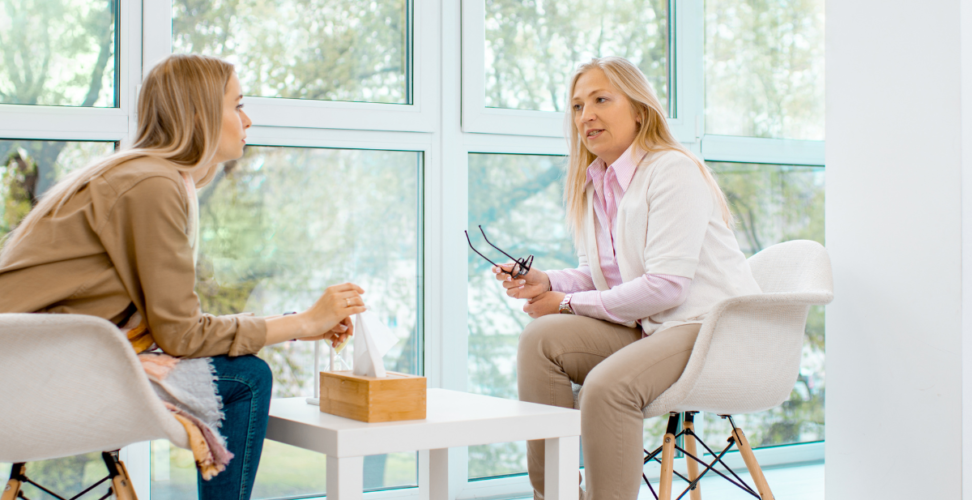Be honest when you’re not okay
We are all doing our best, trying
to balance work with a family life, social life, and everything else that’s on our
to do list. And that’s before we think about any of the difficulties and
challenges we may be dealing with. It’s tempting to say ‘I’m fine’ when someone
asks, even when we’re not. We do this for all kinds of reasons. We want people
to think we have it all worked out. That we’re perfectly capable of dealing
with anything and everything on our own, thank you very much. But the burden is
so much heavier when you try to carry it alone. The next time someone asks how
you are, don’t reply instantly with ‘I’m fine’ if you’re not. Normalise opening
up and sharing the difficult bits of life with others, not just the good bits.
Allow yourself to be ‘good
enough’
Whether at work, at home, or in
life in general, embrace the idea that being perfect is not necessary.
Perfectionism can pile on the pressure and affect your self-esteem when you
don’t meet the self-imposed or society-imposed standards. Ditch perfectionism
for better mental health. Where in your life can you relax and allow yourself
to be ‘good enough’?
Start labelling your emotions
In our ‘positive vibes only’
culture, sadness, anxiety, boredom, or anger are seen as problems that we need
to suppress or get rid of. The truth is, these are all perfectly natural
responses and our emotions are often a good indicator that something is going
on that we need to be aware of. Try this: the next time you feel sad or
anxious, instead of avoiding it or turning to an unhelpful coping mechanism,
bring your awareness to the emotion. It may feel uncomfortable, but sit with it
and be curious about what you are feeling and why you are feeling this way.
Show yourself some compassion
So many people have a critical inner voice that provides a running commentary on everything from how they look to their competence and character. If you told a friend the same things you tell yourself, they probably wouldn’t be your friend for much longer! Try and catch yourself being self- critical and replace the internal dialogue with something much more compassionate.
Connect with others
Loneliness is a modern epidemic.
According to the Campaign to End Loneliness, in 2022, 49.63% of adults (25.99
million people) in the UK reported feeling lonely occasionally, sometimes,
often or always. For better mental health, connect with others, whatever that
looks like for you. It might mean texting a friend and arranging to go for a
coffee. It could be that you start volunteering, or join a group of like-minded
people who share your interests. There is power in connection.
Be mindful
Taking time to pause throughout
the day can really help relieve anxiety and tension, and counteract stress. It
doesn’t mean you need to sit cross-legged and meditate (though go for it, if
that’s your thing!). Everyday mindfulness can look like:
·
Focusing on your breath while you are waiting at
a red light.
·
Taking a few deep breaths to anchor yourself before
you go into a meeting.
·
Savouring the taste of your morning coffee or
your lunch.
All simple ways to take a
much-needed pause during a busy day.
Get out in nature
Research has shown that spending
time in green spaces is beneficial for mental health. It relieves stress and
anxiety, brings us into the moment and takes us out of our heads. When we focus
on what’s around us, we’re not so fixated on what’s going on internally.
Whenever you get the opportunity, go for a walk in nature or spend time in the
garden, and try to really notice the beauty that’s around you.
Take breaks from technology
In these days when our
smartphones are like an extension of our arm, it’s hard to avoid responding to
messages, checking notifications, and mindlessly scrolling. Spending too much
time on screens can leave you distracted, anxious, and low as well as affecting
your sleep if you use them close to bedtime, or in bed like many of us do.
For better mental health commit
to taking breaks from technology throughout the day and evening. You could try
things like not taking your phone to the bathroom, leaving it in another room
during family time and meals, and avoiding using your phone for an hour when
you wake up and an hour before you go to bed.
By putting some of these simple
steps in place, you can improve your mental health and feel more resilient.
If you’re struggling with your
mental health, get in touch at talktous@talk-works.org.uk
Source for stat:

